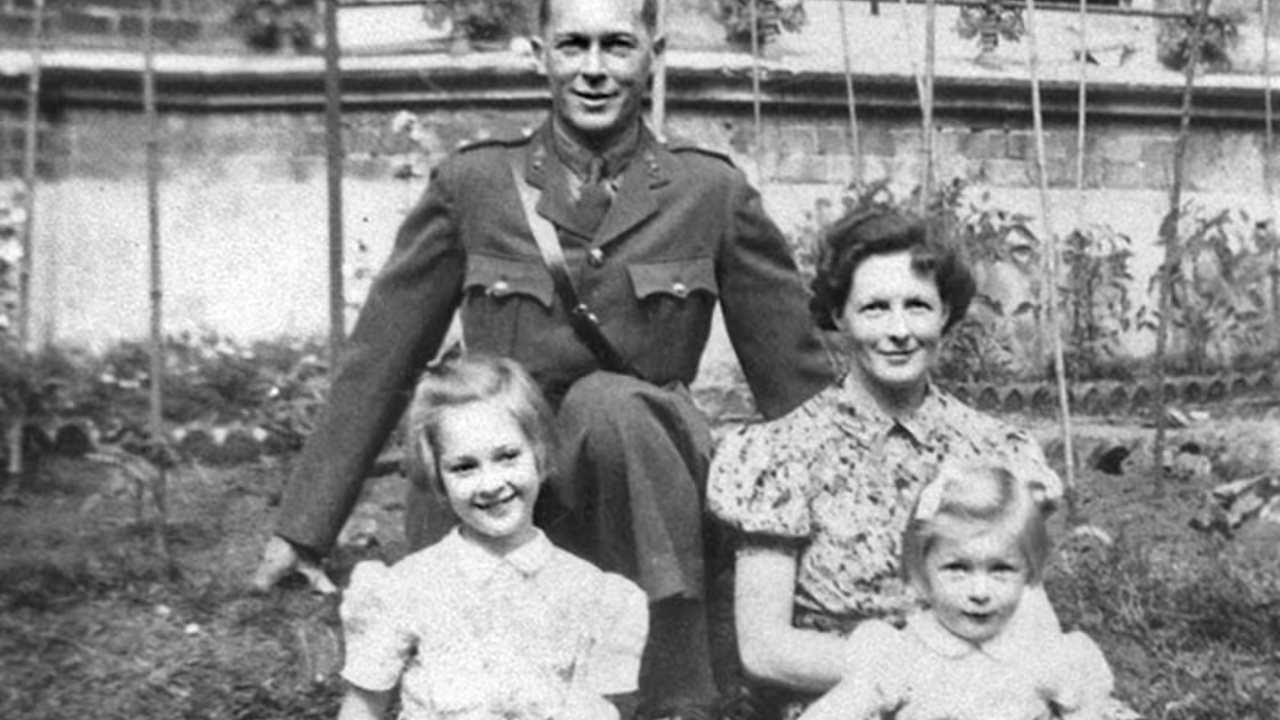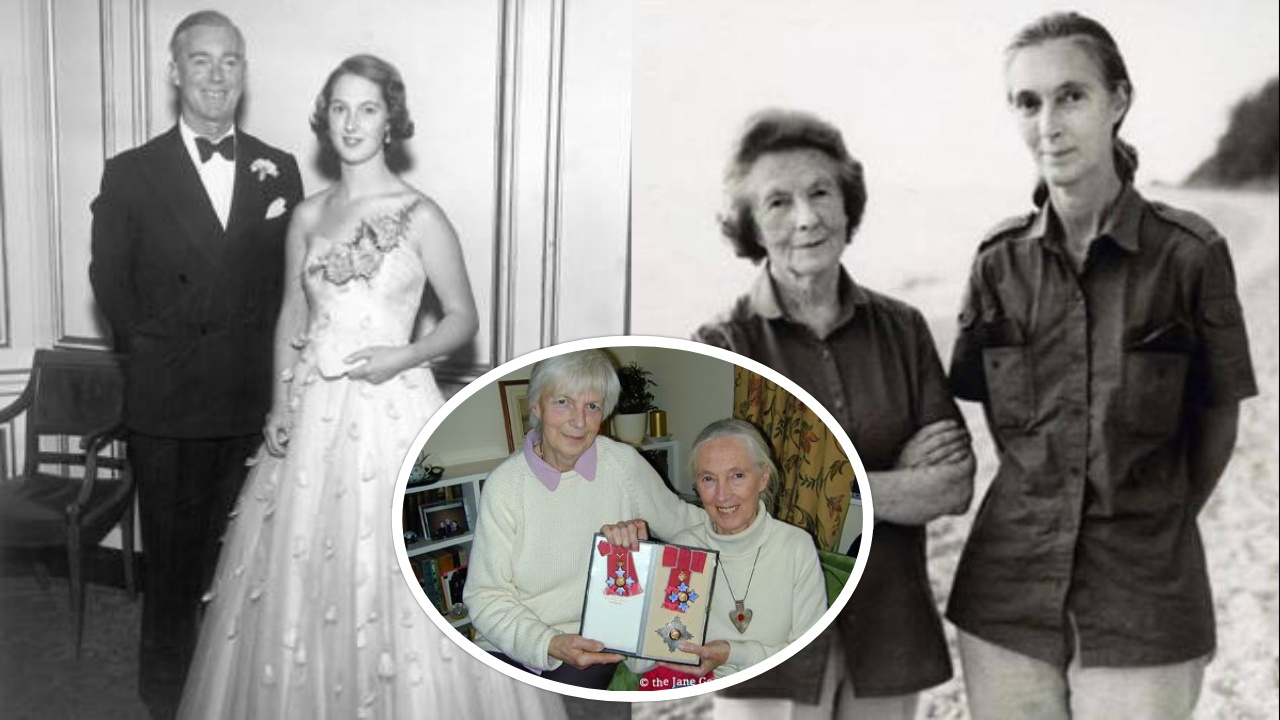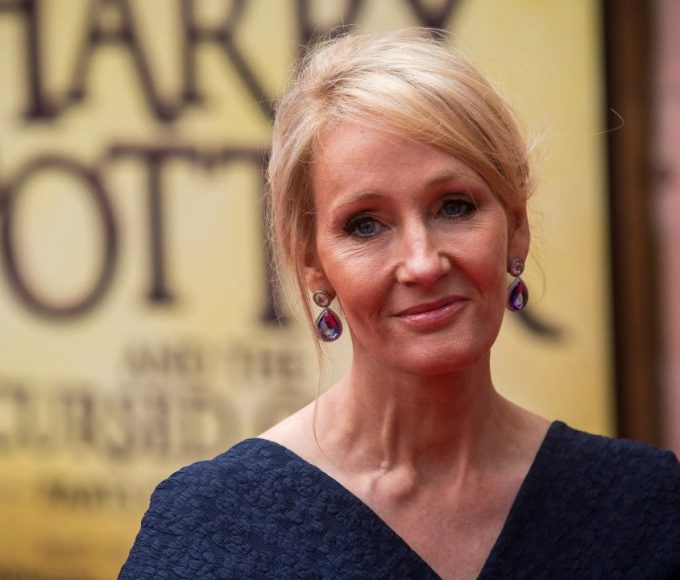While many know Jane Goodall as the trailblazing scientist who redefined our understanding of chimpanzees, the roots of her extraordinary character and resilience can be traced back to her family. Her story begins not in the forests of Gombe, but in a supportive and intellectually stimulating household in England that nurtured her unique spirit from the very start.
Jane’s parents, Mortimer Herbert Morris-Goodall and Margaret Myfanwe Joseph, provided a foundation that would prove essential for her future adventures. Her father, Mortimer, was a businessman and a successful racing car driver for Aston-Martin, a career that initially took the family to France before World War II. Her mother, Margaret, whom everyone called Vanne, was an accomplished novelist who wrote under the name Vanne Morris-Goodall.
Although her parents divorced in 1950, with much of her dad’s absence attributed to his service during the war, Jane maintained a happy childhood, primarily shaped by the encouragement of her mom and other female relatives. From a young age, Jane was fascinated by animals and the natural world. In a now-famous family story, a young Jane once disappeared for five hours, only to be found by a worried and relieved mother hiding in a henhouse, patiently waiting to see how a chicken laid an egg. This early curiosity was a clear sign of the determined observer she would become.
You Might Like: Who Is Keith Urban’s New Girlfriend?
The Support System Behind a Pioneer
Jane Goodall’s immediate family was small and close-knit. She had one younger sister, Judith Daphne, who was four years her junior. After her parents’ divorce, Jane, her sister Judy, and their mother, Vanne, formed a strong unit, living with Jane’s grandmother in the seaside town of Bournemouth. It was this collective of women who fostered an environment of intellectual accomplishment and encouragement.
Jane’s passion for animals was not dismissed as a childish phase; instead, it was actively supported. Her father started this trend by giving her a stuffed toy chimpanzee named Jubilee when she was just a child. Despite friends’ fears that the toy would cause nightmares, Jubilee became a cherished possession that Jane kept for life, sparking her early love for the animals that would define her career.

Without a doubt, the most influential figure in Jane’s life was her mom, Vanne. When the 26-year-old Jane set off for what was then the Gombe Stream Chimpanzee Reserve in Tanzania, the British authorities were deeply concerned for a young woman traveling alone into the wild. The solution came from Vanne, who bravely agreed to accompany her daughter for the first few months, living with her in the African bush.
This was more than just a parental chaperone; it was a profound act of belief and partnership. Jane herself has often credited her mother for encouraging her to pursue her ambitions in primatology, a field dominated by men at the time. Vanne’s presence on the ground at Gombe was a crucial vote of confidence that helped launch one of the most important scientific studies of the 20th century.
A Lasting Legacy of Encouragement
The upbringing Jane Goodall experienced shows that a pioneering spirit doesn’t emerge from a vacuum. It is nurtured by a family that values curiosity and provides unwavering support, even when the dreams seem improbable. From her dad’s fateful gift of a toy chimp to her mom’s courageous stay in the African wilderness, Jane was surrounded by loved ones who believed in her.
This foundation gave her the confidence to venture into the unknown, to patiently gain the trust of wild chimpanzees, and to ultimately revolutionize our understanding of the natural world. Her story is a powerful reminder that behind every great explorer and innovator, there is often a family that helped them believe their dreams were possible.












